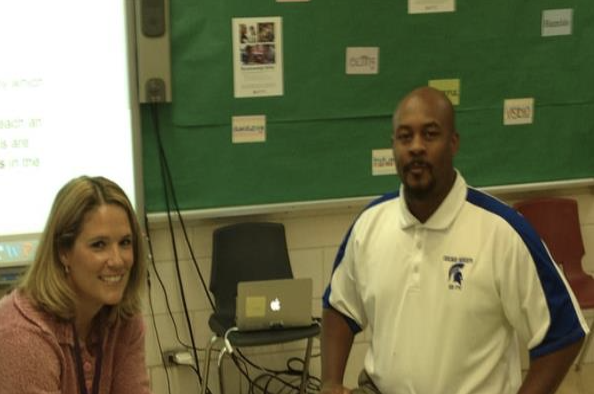Chicago Heights School District 170 has initiated a Peace Program as an integral element of its goal of effecting positive change in social and emotional behaviors district-wide.
Described as a "relationship reflected program," the Peace Program is designed to replace out of school suspensions and to help students in establishing positive interactions with their fellow students, their families, and teachers, staff, and building administrators.
The Peace Room is part of the school district's restorative-practices initiative, a social movement that has seen widespread growth for its adaptability to the school environment.
The component focuses on working with students to help resolve conflicts while nurturing social skills in a secure educational setting.
Increasingly used by schools, courts, community centers, and churches throughout the country as a way to teach young people ways of addressing their anger, Peace Rooms help students learn methods of dealing with tense situations before they escalate.
The program also is used as an alternative to punitive measures such as suspensions and arrests, which often lead to increased troubles in at-risk communities.
The Peace Room consists of a full social-emotional team that works to address the needs of the student. The program services both regular and special education students assigned with what would once have been 4- to10-day out-of-school suspensions.
"We believe that placement in the program will greatly benefit the students by affording them the opportunity to remain in a school setting instead of being left to their own devices while being suspended out-of-school," said Kenyea Beach, the program's Director.
"It has been our experience, as well," he continued, "that students completing the program have a change in their demeanor and perspective and have an easier time transitioning back into their classrooms."
The ultimate goal of the Peace Program is to restore and strengthen student relationships through collaborative efforts that use the program as a teachable moment in creating a positive and long-lasting effect on the interaction between the students, their immediate families, and the school community.
"We understand the importance of servicing the needs of all the students of our district and realize that out of school suspensions often have long-lasting adverse effects on the learning process," said District 170 Superintendent Tom Amadio.
"If the Peace Program is a positive experience for even a small number of students we will recognize the program as being a great success," he concluded.

